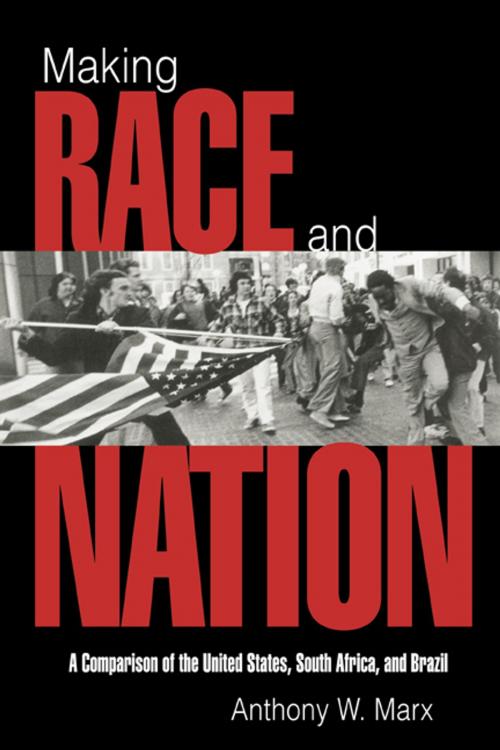Making Race and Nation
A Comparison of South Africa, the United States, and Brazil
Nonfiction, Social & Cultural Studies, Political Science, Social Science| Author: | Anthony W. Marx | ISBN: | 9781139930505 |
| Publisher: | Cambridge University Press | Publication: | December 28, 1997 |
| Imprint: | Cambridge University Press | Language: | English |
| Author: | Anthony W. Marx |
| ISBN: | 9781139930505 |
| Publisher: | Cambridge University Press |
| Publication: | December 28, 1997 |
| Imprint: | Cambridge University Press |
| Language: | English |
Why and how has race become a central aspect of politics during this century? This book addresses this pressing question by comparing South African apartheid and resistance to it, the United States Jim Crow law and protests against it, and the myth of racial democracy in Brazil. Anthony Marx argues that these divergent experiences had roots in the history of slavery, colonialism, miscegenation and culture, but were fundamentally shaped by impediments and efforts to build national unity. In South Africa and the United States, ethnic or regional conflicts among whites were resolved by unifying whites and excluding blacks, while Brazil's longer established national unity required no such legal racial crutch. Race was thus central to projects of nation-building, and nationalism shaped uses of race. Professor Marx extends this argument to explain popular protest and the current salience of issues of race.
Why and how has race become a central aspect of politics during this century? This book addresses this pressing question by comparing South African apartheid and resistance to it, the United States Jim Crow law and protests against it, and the myth of racial democracy in Brazil. Anthony Marx argues that these divergent experiences had roots in the history of slavery, colonialism, miscegenation and culture, but were fundamentally shaped by impediments and efforts to build national unity. In South Africa and the United States, ethnic or regional conflicts among whites were resolved by unifying whites and excluding blacks, while Brazil's longer established national unity required no such legal racial crutch. Race was thus central to projects of nation-building, and nationalism shaped uses of race. Professor Marx extends this argument to explain popular protest and the current salience of issues of race.















